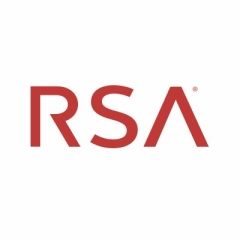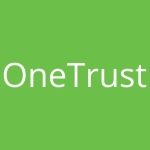What is our primary use case?
I am using RSA Archer for internal audit management. It is used for the entire life cycle for audit, which includes engagement planning, reporting, action management, and so on. It is also used for internal resource management. The timesheet management, resource management, and training are being managed through the same system.
It has been deployed on-premises. My organization has 16 groups. It is installed and managed centrally by the headquarters, and we are using the application.
How has it helped my organization?
We got rid of a lot of paperwork. As an internal auditor, we have to comply with IIA guidelines. There are standards that we need to follow while completing an engagement. A lot of requirements have been automated through the system, such as quality assurance, engagement review, audit follow-ups, and so on. It has supported the organization as a whole.
It is highly customized for our organization. It is primarily for GRC, but we are using it for audit management, resource management, timesheet management, and so on. These were add-ons features that were customized and developed by the vendor.
What is most valuable?
Its user interface is pretty neat, and there is flexibility in generating the data. You can customize reports at any level. You can directly get reports in Tableau format. If you want to generate statistical data, you can create reports with graphs. There is an adequate amount of flexibility for changing the format, the type of graphs, etc.
What needs improvement?
The dashboard that is a part of the RSA Archer could be more aesthetic.
There should be a way to export and get data from the system in PDF or PowerPoint presentation format. This would be a great addition.
For how long have I used the solution?
It has been almost two years since we have been using the product. We have been using it almost on a daily basis.
What do I think about the stability of the solution?
We have been using the web application, and sometimes, there are issues related to the network availability, etc. Other than that, we have not seen any issues in terms of performance and input and output controls. We never had any reports that were not correct. So, more or less, it is fine.
What do I think about the scalability of the solution?
Scalability-wise, we already have a proven case. Deploying a solution in one company with a fixed, organized structure is one thing, but deploying at a mass level in multiple companies and bringing them all together in one single platform is a completely different thing. It proves the scalability of the solution. There is no doubt that it can be scaled to multiple organizations in one go.
We have more than 200 users. They are internal auditors, but if we also count the auditees who use the same system, the number would be much higher.
How are customer service and support?
Our version of RSA Archer is heavily customized. Therefore, at the initial stage of the deployment, there were a few issues for which we needed support. We had a few workflow issues or anomalies in the reporting.
At the organization level, we have a uniform IT management system for IT tickets. We have an IT support team at the group level, and then we have a support team in headquarters. It is being managed just like any other solution in the organization. We are satisfied with the support.
Which solution did I use previously and why did I switch?
I have seen the deployment of the SAP-based audit management system in 2013 or 2014, which might have changed a lot over these years. From a user's point of view, RSA Archer has a better user interface. It is easier to use. SAP had a typical structure and user interface. It might not have been user-friendly for everyone. RSA Archer is more user-friendly. Its acceptability is much higher when you are deploying it in an organization.
How was the initial setup?
It followed the usual SDLC life cycle. They came and understood the processes. They understood the way the audit was being managed in our organization. It was a joint effort between our organization and the vendor. There were a lot of sessions to understand how we conduct our processes and what are the challenges that we face. Bringing almost 16 to 17 companies in one single platform was a challenge in itself. Even though we had the same policy procedure, there were some differences in the way things were being done, the formats of the files that we were using, and the way people were doing the audits.
It took a lot of time to have a good base of the design itself, but it was worth it. The deployment was done phase-wise. It was not a single-phase deployment; it was a multi-phase deployment. Initially, we just implemented the basic audit management in which we were able to create engagements and add the findings. Later on, more complexities were added related to quality management, timesheet management, detailed reporting, and so on.
It required a lot of interaction with the group companies and the development team in the HQ. There was one whole team in the HQ that had 15 to 20 people. From each company, there were about two to three people. It was a big team. My estimate is that we had at least 20 to 30 people.
The initial deployment probably happened in a span of six months. Every quarter or every six months, they take feedback from different companies, and they ask for whatever modification is required from our side, and they keep on releasing the updates, small modifications, and so on. It is a continuous process, and we are still fine-tuning the system.
I'm not an administrator, so I don't have information about the maintenance it requires in the backend. Because it is heavily customized, whatever development happens, it happens only internally. The production and the development environments are optimized. Apart from that, the routine activities that we require are related to any data modification with reference to the audit parameters of the attributes. We usually request to change or modify them. There is also an approval process. These are the kinds of interactions that we have as users.
What other advice do I have?
There is absolutely no doubt that it is a very good tool for audit management as a whole. If you are deploying RSA Archer, the most important thing is that you need to be very clear of your requirements and the processes for audit management. It can maintain the organization hierarchy, business hierarchy, processes, projects, and assets. It can maintain a lot of repositories and attributes related to an organization for mapping individual audits. It is a wonderful tool, but if you are not clear about how you want to deploy it, it could be a mess. This is applicable to any enterprise-level tool.
The reason I'm certifying with RSA Archer is that when you are using it for audit, there is a particular strategy and the way to do it, which may vary from organization to organization. So, you have to be very particular about what you want from the tool before deploying it. You should not deploy it and then define your processes.
I would rate RSA Archer a nine out of 10.
Which deployment model are you using for this solution?
On-premises
Disclosure: My company does not have a business relationship with this vendor other than being a customer.



















